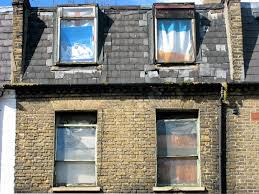Squatting is when a person enters a property on purpose without permission and lives there or has plans to live there. Squatting is occasionally referred to as “adverse possession”, but this is not a term you are likely to hear colloquially.
It is important to remember that squatting in a residential building is illegal. It can likely lead to 6 months in prison or alternatively a large fine, or in a worst-case scenario both.
A person who enters a property with the permission of the landlord or owner is not considered a squatter.
N.B. If you are renting a flat or house and you are late with your rent but you continue to live at the property you are not squatting if you continue to reside there.
What is legal and what is not because slightly more confusing when looking at the protocol surrounding squatting in a non-residential building or land. Whilst it isn’t technically a crime, it is a crime to damage the property.
It is also typically a crime not to live a property when you are asked or instructed to do so by a following number of persons:
- The owner
- The police
- The council
- A repossession order
Why do people squat?
Before dealing with the squatter it might be relevant to consider the motivations behind people choosing to squat.
The United Kingdom has a long history of issues with squatting however things became critical in the 1960s and 1970s as the youth became more interested in alternative lifestyles and became more politicised. However, these lifestyle squatters are in the minimum and it is mostly rough sleepers or other vulnerable groups who will be squatters. According to the homeless charity Crisis, 39% of homeless people have squatted for some period of time.
Removing Squatters
You can remove squatters uses two main processes. The first is called an Interim Possession Order or making a claim for possession.
N.B. Do not try to remove the squatters yourself by threatening them verbally or using physical force, because if you do this you are technically committing a crime
Interim Possession Orders
You are only eligible to apply for an IPO if it has been 28 days or fewer that you discovered your property is being squatted on.
The IPO has to be filled in and then sent to a county court. The court will then send a confirmation of receipt within a few days and they will also send you a number of extremely important documents that you must present to the squatters within a 48-hour time frame.
Once the squatters have themselves received the IPO they are at risk of going to prison if they don’t leave your property within 24 hours or they don’t stay away from your property for 12 months.
If you want to the final possession of the property in question you have to file a claim for possession. You can do this either as a part of your IPO application or separately online, it depends on your preference but both are valid.
N.B. You cannot use an IPO if you are also claiming for the damages caused by the squatters if this is the case you should make a normal claim for possession; or furthermore, the IPO does not apply if you are trying to evict former tenants, sub-tenants or licensees
N.B. It is important to remember that to have an interim possession order can often be as costly as a couple of thousand pounds.
Squatters’ Rights
A squatter who has been residing or a property or piece of land can potentially become the registered owner even if they’ve occupied without the owner’s permission.
As a squatter who are eligible to apply for this if you fulfil the following conditions:
- Either one or a succession of squatters have occupied the property for an uninterrupted period of 10 years or more
- You or those who came before you have acted as if you were indeed legal owners of the poetry
- You or any of the predecessors didn’t have the owners permission
How to keep squatters off your property?
As if fairly obvious having efficient security is one of the most crucial factors to preventing squatters from coming to settle on your property. If they force their way onto your property they have caused physical damage and this is an offence. If you are leaving your property for an extended period of time it might be worthwhile informing neighbours and other relevant individuals so they can keep an eye out on your property. There is a third option, which is to sign your property over to one of the numbers of UK property guardian schemes which look after properties of personal and commercial use on behalf of the owners.
What do you do if you suspect there are squatters in your neighbour’s property?
If you are of the suspicion that someone might be squatting in your neighbour’s house and you are aware that they have not asked for anyone to come stay there whilst they are away, it is the best course of action to call the police.
Where will a squatter live after they have been removed from the property?
If you were previously a squatter and then are removed from the property and have nowhere to reside there is the chance that the council may be able to rehouse you or help organise alternative residential plans for you.
For those who are in the process of buying a property but need to complete before they are likely to get a mortgage approved, see our information on bridging loans.
